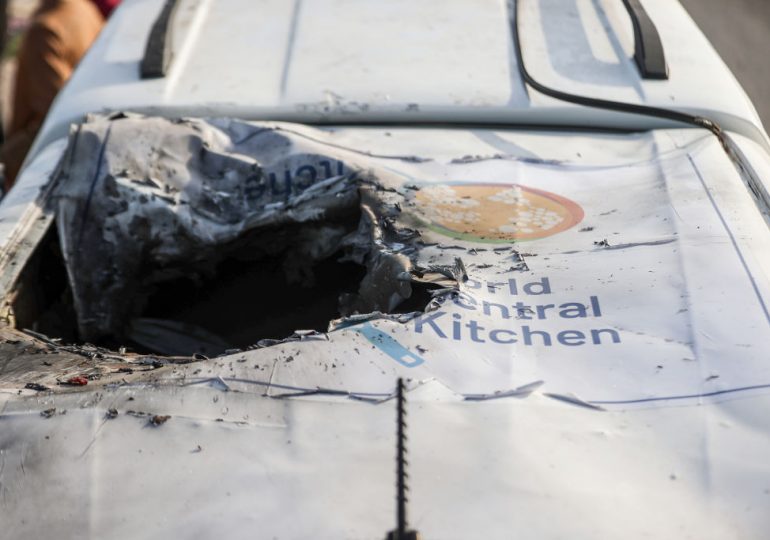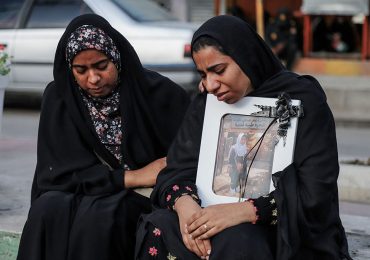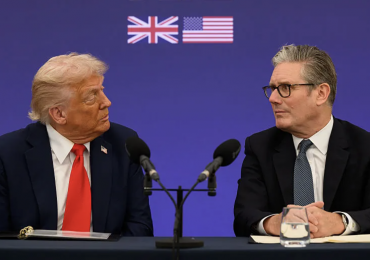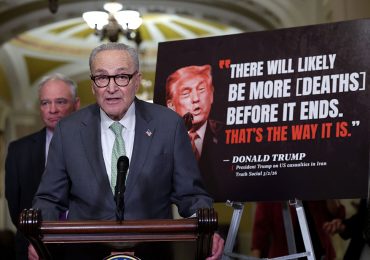U.S. officials on Tuesday scrambled to distance themselves from a series of Israeli military actions in Syria and Gaza that threaten to escalate hostilities in the region and further draw America into the conflict.
Pentagon officials said that Israel did not notify them about its strike on an Iranian embassy building in Damascus, Syria, on Monday, which killed at least seven Iranian officials including three senior commanders. “Tensions being high in the region, we wanted to make it very clear in private channels that the U.S. had no involvement in the strike in Damascus,” Pentagon spokesperson Sabrina Singh told reporters. (The Israeli government itself has not publicly acknowledged the strike.)
[time-brightcove not-tgx=”true”]
Monday’s attack was a major escalation that “crossed a new line” in what has largely been a shadow war between the two foes, says Ali Vaez, director of the International Crisis Group’s Iran Project. Striking an Iranian diplomatic facility was “almost like targeting Iran on its sovereign soil,” he says.
At the same time, U.S. officials on Tuesday sought to manage global anger and control the fallout from the Israeli Defense Forces’ strike on a humanitarian convoy, which killed seven workers for the charity organization World Central Kitchen on April 1. The White House was “outraged” to learn that the strike had killed civilian humanitarian workers, National Security Council spokesman John Kirby said, calling it “emblematic of a larger problem.”
These are only the latest incidents that have forced U.S. officials to spend a significant amount of time answering for Israel’s actions. The IDF’s war against Hamas in Gaza, backed by U.S. military aid, has killed more than 32,000 Palestinians and left hundreds of thousands facing famine. Now, the strike on the World Central Kitchen convoy has led aid groups as well as the United Arab Emirates to pause their humanitarian assistance work at a critical moment.
“The U.S. must answer”
While it’s still unclear what shape it will take, there is little doubt that Iran will follow through on its threat to retaliate against Israel for the attack on its embassy compound, officials and analysts said on Tuesday. Failing to do so would undermine Iran’s military presence in the region, including in Syria, Lebanon and Iraq. However, it has been clear that Iran does not want the conflict to escalate into a direct confrontation. Iranians believe that Israel is seeking to expand the war, which would help the Netanyahu government politically and potentially drag the U.S. into a confrontation with Iran, analysts say.
“In the same way that we hold Iran accountable for actions of its proxies [for] providing arms and financial support to its allies in the region,” says Vaez, “they hold the U.S. responsible for Israeli actions, because the U.S. arms and finances the Israeli military.” This means that after a two-month pause in attacks from Iranian proxies, America’s own troops in the region could once again be at the receiving end of Iran’s retaliation.
Iran summoned the Swiss ambassador for a midnight meeting on Tuesday, asking them to pass on a message to Washington that the “U.S. must answer” for Israel’s actions, foreign minister Hossein Amir Abdollahian said in a post on X. (Since Washington and Tehran have no diplomatic relations, Switzerland serves as an intermediary). One of the military officials who is reportedly among the dead, Brig. Gen. Mohammad Reza Zahedi, would be the most senior Islamic Revolutionary Guard Corps officer to be killed since the 2020 U.S. assassination of Qassen Soleimani.
“This happens in a war”
Speaking at a press conference in Paris on Tuesday, Secretary of State Antony Blinken said U.S. officials had spoken directly with the Israeli government and “urged a swift, a thorough and impartial investigation” into the strikes on the humanitarian convoy in Gaza. But unlike his counterpart Stephane Sejourne, who expressed France’s “firm condemnation” of the Israeli military’s actions while standing next to America’s top diplomat, Blinken did not condemn the incident.
“This happens in war,” Israeli Prime Minister Benjamin Netanyahu said in a video statement on Tuesday, calling the strikes a “tragic event in which our forces unintentionally harmed non-combatants in the Gaza Strip.” World Central Kitchen says the group was traveling in three cars, two of which were clearly marked with the charity organization’s logo. “This is not only an attack against WCK, this is an attack on humanitarian organizations showing up in the most dire of situations where food is being used as a weapon of war,” said Erin Gore, chief executive of World Central Kitchen. “This is unforgivable.”
Asked if there was no red line the U.S. was willing to draw when it comes to continuing to provide military aid to Israel after the attack on aid workers, Kirby expressed exasperation.
“We’ve had this discussion quite a bit,” he said. “You want us to hang some sort of condition over their neck. And what I’m telling you is that we continue to work with the Israelis to make sure that they are precise as they can be…That doesn’t mean that it’s a free pass.”









